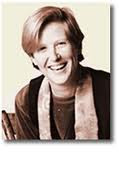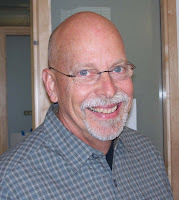Bios from The One People, One Earth Panel
In the previous post I promised to post the biographical statements describing the speakers as soon as I got a copy. Here they are. We all wrote our own bios, but I see that mine, at least, had additions attached. I also googled these people and loved learning more about these amazing people. It has been. and continues to be a privilege to serve with them.
Moderator:

Libby Roderick is Associate Director for the Center for Advancing Faculty Excellence at UAA as well as the Director of the UAA/APU Ford Foundation-sponsored Difficult Dialogues initiative. She works with faculty nationally and internationally to more effectively address controversial topics in the classroom, including issues related to Alaska’s Native communities. She is the editor of Alaska Native Cultures and Issues: Responses to Frequently Asked Questions, which provides responses to commonly asked questions through the eyes of Alaska’s indigenous scholars, leaders and community members. She also oversees faculty initiatives on diversity, sustainability, and 21st century trends in higher education here at UAA.
Alaska Native Elders:
Elder Elaine Abraham was born and raised in Yakutat, Alaska. Her father was a traditional Tlingit chief and Elaine was raised in the traditional Tlingit manner. After earning a nursing degree and working for several years in Arizona, she returned to Alaska as the first Tlingit registered nurse. Ms. Abraham is a revered Tlingit elder and serves as Chairperson of the Board of Commissioner's of the Alaska Native Science Commission.
Elder Rita Blumenstein is a Yupik Elder and the first certified tribal doctor in Alaska. Today, Rita is a tribal doctor for the South Central Foundation and uses plants and energy medicine to heal along with the wisdoms learned from her own grandmothers. Grandmother Rita is now teaching her granddaughter to be a healer and carry on the traditions. She tells her granddaughter that the whole universe is for everyone's use; “Nothing is to be owned, only shared.”
Ilarion (Larry) Merculieff Larry Merculieff has over 35 years experience serving his people, the Aleuts of the Pribilof Islands and other indigenous peoples locally, nationally, and internationally in a number of leadership capacities. Larry was the first Alaska Native commissioner of the Alaska Department of Commerce and Economic Development, a state cabinet post. Larry also served as the chair of the indigenous knowledge sessions of the Global Summit of Indigenous Peoples on Climate Change and served as the chair of the scientific committee for Snowchange, a consortium of indigenous leaders from 8 Arctic countries focused on climate change. He also engaged in a western states speaking tour on climate change. Recently he worked with the Great Lakes tribes to develop strategies for culturally based adaptation to climate changes.
Scientists:
Dr. F. Stuart (Terry) Chapin, III Terry Chapin is an ecologist at the University of Ala
ska Fairbanks whose research addresses the sustainability of ecosystems and human communities in a rapidly changing planet. This work emphasizes the impacts of climate change on Alaskan ecology, subsistence resources, and indigenous communities, as a basis for developing climate-change adaptation plans.
 Douglas Causey is a professor of biological sciences at the University of Alaska Anchorage, and has been involved in climate change research in the Arctic for many years. He served as a scientific program officer at the National Science Foundation in the Office of Polar Programs and the Climate Change programs, and is a consultant to many private and non-profit foundations. Currently, his research is focused on understanding how social, cultural, and ecological systems of the North are interrelated and how they react together to a changing climate and environment.
Douglas Causey is a professor of biological sciences at the University of Alaska Anchorage, and has been involved in climate change research in the Arctic for many years. He served as a scientific program officer at the National Science Foundation in the Office of Polar Programs and the Climate Change programs, and is a consultant to many private and non-profit foundations. Currently, his research is focused on understanding how social, cultural, and ecological systems of the North are interrelated and how they react together to a changing climate and environment.
Interfaith Leaders:
Ima m Dr. Ataur Chowdhury is faculty of Physics at the University of Alaska Fairbanks, and has been at his current position for the last 21 years. Besides teaching, he has engaged himself with research dealing with photovoltaic solar cells to recoup energy from the everlasting source of energy, the Sun. He is also the religious leader of the Islamic Society of Fairbanks.
m Dr. Ataur Chowdhury is faculty of Physics at the University of Alaska Fairbanks, and has been at his current position for the last 21 years. Besides teaching, he has engaged himself with research dealing with photovoltaic solar cells to recoup energy from the everlasting source of energy, the Sun. He is also the religious leader of the Islamic Society of Fairbanks.

Father Thomas Weise is a Roman Catholic Priest of the Diocese of Juneau, currently serving as pastor of both St. Rose of Lima in Wrangell and St. Catherine of Siena in Petersburg. Over the years, Fr. Thomas has become a highly revered and beloved member of the broader Southeast Alaska community. Fr. Thomas came to Alaska as a member of the US Coast Guard to help with the Exxon Valdez oil spill, which focused his desire to care for the natural world. Fr. Thomas is a founding member of Alaska IPL and continues to serve on the board and contribute his extensive theological knowledge and passion for caring for creation.
his extensive theological knowledge and passion for caring for creation.
Reverend Curtis Karns is the Executive Presbyter of the Presbytery of Yukon, which oversees 23 churches across Alaska. Rev. Karns and wife Cindee, are stalwart stewards of creation, living in Alaska’s only bioshelter and primary founders of Yukon Presbyterians for Earth Care.






Comments
Post a Comment